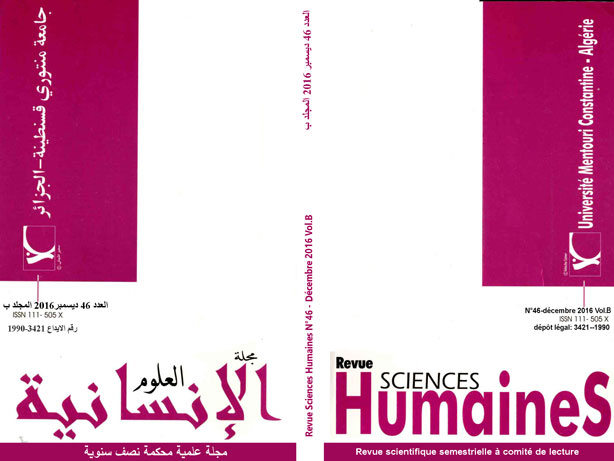The Effects of Using Paper and Electronic Monolingual English Learners’ Dictionaries while Reading on Students In-depth Vocabulary knowledge
Keywords:
Vocabulary Knowledge, Dictionary, Electronic DictionaryAbstract
Learning new words is a primary concern for most learners. Accordingly, many EFL students make use of English-English dictionaries, paper and electronic to develop their vocabulary. The purpose of this quasi-experimental study is to examine the effects of using dictionaries on students’ in-depth vocabulary knowledge. The results showed that students’ in-depth vocabulary knowledge improved when they used their dictionaries, in particular electronic ones. Thus, using dictionaries as a learning tool deserves more attention in the context of EFL vocabulary learning and teaching.
Downloads
References
- Schmitt, N., & McCarthy, M. (eds.). (1997). Vocabulary: Description, Acquisition and Pedagogy. Cambridge: Cambridge University Press.
- Nation, P. (1990). Teaching and Learning Vocabulary. Boston: Heinle & Heinle.
- Stahl, K. A. D., & Bravo, M. (2010). Contemporary Classroom Vocabulary Assessment for Content Areas. Reading Teacher, 66(7), 566-578.
- Hunston, S., Francis, G., & Manning, E. (1997). Grammar and Vocabulary: Showing the Connections. ELT Journal, 51(3), 208-216.
- Ordonez, C. L., Carlo, M. S., Snow. C. E. & Mclaughiin, B. (2002). Depth and Breadth of Vocabulary Knowledge in Two languages: Which Vocabulary Skills Transfer? Journal of Educational Psychology, 94, 719-728.
- Summers, D. (1988). The Role of Dictionaries in Language Learning. In R. Carter & M. McCarthy (Eds.), Vocabulary and Language Teaching (pp. 111- 125). London: Longman.
- Honeyfield, J. (1977). Simplification. TESOL Quarterly, 11, 431–440.
- Miller, G. A., & Gildea, P. M. (1987). How Children Learn Words. Scientific American, 257(3), 94–99.
- McCarthy, M. & Dolezal, F. (1999). A Study of Dictionary Use by ESL Students in an American University. International Journal of Lexicography 12(2): 107-145.
- Nist, S. L., & Olejnik, S. (1995). The Role of Context and Dictionary Definitions on Varying Levels of Word Knowledge. Reading Research Quarterly ,30(2), 172-192.
- Knight, S. (1994). Dictionary Use while Reading: the Effects on Comprehension and Vocabulary Acquisition for Students of Different Verbal Abilities. The Modern Language Journal, 78(3), 285-299.
- Hulstijn, J., Hollander, H., & Greidanus, T. (1996). Incidental Vocabulary Learning by Advanced Foreign Language Students: the Influence of Marginal Glosses, Dictionary Use, and Reoccurrence of Unknown Words. The Modern Language Journal, 80(3), 327-339.
- Cubillo, M. C. (2002). Dictionary Use and Dictionary Needs of ESP Students: an Experimental Approach. International Journal of Lexicography, 15(3), 206-228.
- Sökmen, A. J. (1997). Current Trends in Teaching Second Language Vocabulary. In N. Schmitt & M. McCarthy (Eds.), Vocabulary: Description, Acquisition and Pedagogy (pp. 237-257). Cambridge: Cambridge University Press.
- Neubach, A., & Cohen, A. D. (1988). Processing Strategies and Problems Encountered in the Use of Dictionaries. Dictionaries, 10, 1-19.
- Fraser, C. A. (1997). The Impact of Lexical Processing Strategy Instruction on l2 Readers’ Strategy Use, Reading Rate, Reading Comprehension, and Vocabulary Learning. (Unpublished doctoral dissertation).
- Cowie, A. P. (1999). English Dictionaries for Foreign Learners: A History. . Oxford: Clarendon Press.
- Atkins, B. T. S. (Ed). (1998). Using Dictionaries: Studies of Dictionary Use by Language Learners and Translators. Tübingen: Niemeyer.
- Kirkness, A. (2004). Lexicography. In A. Davies & C. Elder (eds.), The Handbook of Applied Linguistics (pp. 54-81). Oxford: Blackwood Publishing Ltd.
- Hartmann, R. R. K. (1987). Four Perspectives in Dictionary Use: a Critical Review of Research Methods. In A. P. Cowie (ed.), The Dictionary and the Language Learner (pp. 11-28). Tübingen: Max Niemeyer.
- Nesi, H. (2000). The Use and Abuse of EFL Dictionaries. Tübingen: Niemeyer.
- Taylor, A., & Chan, A. (1994). Pocket Electronic Dictionaries and Their use. In W. Martin, W. Meijs, M. Moerland, E. ten Pas & P. van Sterkenburg...Vossen (Eds.), Euralex 1994 Proceedings: Papers Submitted to the 6th EURALEX International Congress on Lexicography in Amsterdam, The Netherlands (p. 598–605). Amsterdam: Euralex.
- Koga, Y. (1995). The Effectiveness of Using an Electronic Dictionary in Second language Reading. Bulletin of the Liberal Arts of Hiroshima University, 44, 239-244.
- Carr, M. (1997). Internet Dictionaries and Lexicography. International Journal of Lexicography, 10(3), 209 - 221.
- Weschler, R., & Pitts, C. (2000). An Experiment Using Electronic Dictionaries with EFL Students. The Internet TESL Journal, 6(8), retrieved from http://iteslj.org/Articles/Weschler-ElectroDict.html.
- Sharpe, A. (1988). Pragmatic Considerations for an English-Japanese Dictionary. International Journal of Lexicography, 2(4), 315-323.
- Hatch, E. & Brown, C. (1995). Vocabulary, Semantics, and Language Education. Cambridge: Cambridge University Press.
















